DISCOVERY PHASE

DISCOVERY PHASE
Visualising your project isn’t always easy, especially if you’re not entirely sure what you’re looking for – and that’s where our Discovery Phase is your key to minimising project risk.
This series of collaborative sessions is all about digging deeper to encapsulate exactly what your project needs to achieve in order to deliver results, before you start the journey onto full development.
WHAT'S INCLUDED
From flushing out the needs of your business to uncovering all the little things that could possibly go wrong (and providing real-time solutions), the Discovery Phase is your opportunity to tell us about your project and find out if we’re the right fit for you.
It’s also our chance to get valuable insight into how we can help you achieve those key goals, and, in turn, outline a concept that is cost-effective for your budget.
I've just wrapped up the discovery phase with your team this morning, and wanted to say a huge thank you. I've absolutely loved the process, Nick, Al and Danielle have been brilliant to work with and the output far exceeds any expectations I had about what is possible! You have a fantastic team and I'm genuinely excited to go into funding rounds knowing my ideas are in such safe hands :)

Trudy Ward
Neuroinclusion Specialist | Strategic People Consultant
Trudy Ward Consulting Limited

WHAT WE COVER
EVENT STORMING
A collaborative series of ideation sessions, using Miro to confirm assumptions, test understanding and expose detail – to be incorporated into a solid conceptual model.

USER STORIES
The discovered Actors (people who use the system), Actions (the stuff those people can do) and Events (the results of those actions) written up as short User Stories – used as a concise, non-technical way to describe the basic functions of discrete parts of a system.

ROADMAP
A journey to development, including when to expect parts of the project to be delivered, while allowing us to synchronise activities where work or materials from your end may be required.

WIREFRAMING (OPTIONAL)
A tangible representation of software design or function, to help visualise, hone and polish fundamentals before programming begins. Read more about it below.
THE OUTCOME
By the time we’re done, we’ll have drafted a detailed concept that’s ready to move into the next phase of development, so you can invest in your next digital project with confidence.
YOUR QUESTIONS ANSWERED
Is a discovery phase necessary?
Every project is different but they all start with our Discovery Phase. It involves a full process of event storming, user stories and wireframing, and allows us to get your project prepped ahead of full development.
This is a vital part of our development process, ensuring everyone on both sides of the project has a clear idea of the goals and aims of the project, while creating a detailed roadmap of how to move forward onto next steps.
This eye-opening process isn’t just for us, though; it’s about helping you gain full clarity of what you’re trying to achieve and how it could work, improving communication between your own team about the needs of the project and what success could look like.
Most importantly, however, it’s about eliminating risks and delays before they arise, to ensure the process remains cost-effective and pain-free for everyone involved.
Will I get a proof of concept?
In the final stages of the Discovery Phase, we can focus on helping you develop a proof of concept, making sure what is proposed is possible to bring to life. Essentially, it’s about making sure the project aims can be practically achieved with the technology and skills available, before moving into full development.
It means we take the idea and test it against feasibility, risks, resource planning and stakeholder buy-in before any further investment takes place. This allows us to solve user problems and identify any risks that were not included in assumptions in the early stages of planning.
This proof of concept can then be further supported and expanded with a wireframe or software prototype (or visual Click-Through), building increased confidence in the project before we hit the ground running with further project development.
What is a wireframe?
You can think of a wireframe as a simplistic representation of a screen layout, often just outlines and blocks, that captures the content needed (but not in detail), functionality and navigation for the user journey. It’s about pulling those great ideas into a tangible format, that gets everything out of our heads and onto a screen – ready to be questioned and discussed.
This stage also allows us to build confidence across the team by demonstrating a clear vision and understanding of the users’ needs. It’s also an opportunity to hone and polish fundamentals before full development gets underway.
For more expansive Discovery Phase approaches, this can also lead to an interactive prototype (or visual Click-Through) that allows you to assess how it feels to use the software for the first time, such as a simplistic app that demos a sought-after feature or experience (also known as a software prototype).
Software prototypes: do I need one?
Not everyone needs a software prototype at this stage in their journey – but, if you’re looking to build team buy-in from senior staff or, for example, to gain improved chances for funding, a software prototype (such as a simplistic app that demos a sought-after feature or experience) can be a massive help.
The decision to create a software prototype will be fleshed out during the Discovery Phase sessions, as the exact needs of the project are collaboratively agreed on by teams on both sides.
For some businesses, a software prototype is an ideal way to test, evaluate and validate the idea with both users and internal team members, ensuring you can move forward with the confidence that you are building the right product and features before moving into full development.
Does a discovery phase tie me in for full development?
The wonderful thing about undergoing our Discovery Phase journey is that you have no obligation to work with us further if you decide to pause the project or work with a different development team (it might even be your own development team!).
The Discovery Phase helps us create a blueprint for your project that you can take with you at the end, so, you know that, even if you decide not to work with Buzz, you have a tangible project plan to move forward with.
While we pride ourselves on bringing most of our Discovery Phase clients’ projects to life (just check out our case studies), we understand that, whether for budget or chemistry reasons, some businesses may decide to go in another direction.
The most important thing for us is that our Discovery Phase gives you real value and a solid idea of how to move forward with your bespoke software project, whatever direction you decide to take.
Have you got experience developing software in my industry?
Here at Buzz, we've worked across many industries through the last two decades. In fact, from the finance and medical sectors, to charities, energy businesses, and more, we've almost covered it all. You can see some of our most recent projects, here.
If you're unsure whether we can help your business, get in touch! Our software developers are always driving innovation in their field, and would love to show you how we can make bespoke software work for your business.
BOOK YOUR DISCOVERY PHASE TODAY
Ready to get started?








